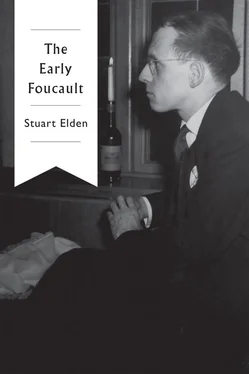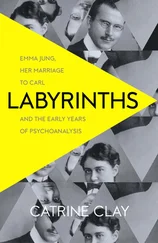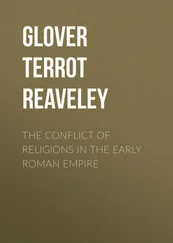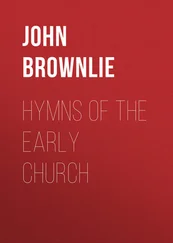1 ...7 8 9 11 12 13 ...18 Politzer developed one approach to psychology, in contrast to Ignace Meyerson’s more historical approach. 116Defert claims that Foucault spent time with Meyerson from October 1951 (C 17/17; CH 40), which has been used to argue for the importance of Meyerson for Foucault’s work. 117However, a letter from Foucault to Meyerson from June 1953 requesting a first meeting challenges this chronology. 118A more balanced approach to this relation to contemporary currents in psychology can be found in the unpublished thesis of Alessandro de Lima Francisco. 119In addition, Defert recounts that Pierre Morichau-Beauchant, one of the first French psychoanalysts, and a family friend of the Foucaults, gave Foucault his collection of early psychoanalysis journals in October 1951, shortly before his death and just as Foucault began teaching (C 17/17).
Another key figure in Foucault’s knowledge of psychology was teaching outside the formal university system. While he was still based in Paris, Foucault attended Lacan’s seminar, which was held for two hours on Wednesdays from November to July. 120The seminar began in 1951, initially in Lacan’s living room, before moving to the Hôpital Sainte-Anne in late 1953. Lacan was fifty when the seminar began, and there was a lot of clinical and theoretical experience behind it. Lacan’s thesis On Paranoid Psychosis in Relationship to Personality had been published in 1932, and there were other early publications. 121 Écrits begins with a text from 1936, but it is selected writings, not a complete works. As Lacan’s son-in-law and seminar editor, Jacques-Alain Miller, indicates, Lacan believed that his real work began around the time his seminar teaching began: writings before that were its ‘antecedents’. 122Hyppolite was an active participant in the 1953–4 seminar. 123Miller notes that Hyppolite was a regular attender, and ‘was quite open-minded at a time when other French philosophers found Lacan too difficult to understand’. 124
It is worth underlining that Lacan’s seminar was, until the 1960s, simply advertised as ‘Commentaries on the texts of Freud’. 125Sigmund Freud had died in 1939, and Lacan begins his seminars only twelve years later. Part of Lacan’s explicit purpose was to return to Freud himself, stripped of some of the intervening years of interpretation and adaptation. As he comments: ‘The meaning [ sens ] of a return to Freud is a return to Freud’s meaning [ sens ].’ 126A crucial text was the 1953 Rome lecture ‘The Function and Field of Speech and Language in Psychoanalysis’, which has been described as ‘for all practical purposes the manifesto of the structuralist reinterpretation of Freud’. 127
Miller notes that instead of a recording being made, or Lacan’s notes being available for editing, the seminar sessions were recorded in shorthand by a stenographer and then typed up. Copies were made of this typescript, which circulated for several years before Miller began the process of editing the seminars for publication. 128But the stenographer only began work when the seminar moved to Sainte-Anne. As a consequence, there are few traces of the first two years’ sessions, looking at Freud’s most famous case studies. In 1953 Lacan indicates that the ‘Wolf Man’ was the focus in the first year (1951–2); the ‘Rat Man’ in the second (1952–3). 129In the first year he also discussed the Dora case, but no notes survive. 130Miller suggests that ‘Intervention on Transference’ in Écrits contains echoes of this year’s discussion. 131In the second year Lacan discussed the ‘Wolf Man’ case again, of which some notes are available. 132The opening lines of the first session refer back to the Dora case. Unfortunately, no notes on the ‘Rat Man’ discussion have been preserved. However, Lacan’s Paris lecture ‘The Neurotic’s Individual Myth’, which was circulated in unauthorized form from 1953, and finally published in 1978, may draw on material first delivered in this seminar. 133Miller also suggests that the Rome lecture reflects this work. 134
For his 1953–4 seminar, Lacan discussed ‘Freud’s papers on technique’, and a partial transcript forms the first volume of the published seminars. 135Unfortunately almost all of the 1953 material is lost, with the published version really beginning with the 13 January 1954 session. Lacan utilized material from the seminar in some of his other lectures and writings. ‘Variations on the Standard Treatment’ and ‘Introduction and Reply to Hyppolite’ stem directly from this seminar, and were published in 1955 and 1956 but, as Miller has noted, texts from several years later pick up and elaborate on themes discussed in this class. He mentions two: ‘Remarks on Daniel Lagache’ in 1960, and ‘The Mistaking of the Subject Supposed to Know’ from 1968. 136In 1954–5 the seminar topic was ‘The Ego in Freud’s Theory and in the Technique of Psychoanalysis’. 137The two key texts read were Freud’s ‘Beyond the Pleasure Principle’ and ‘The Ego and the Id’. 138In these early years Lacan was therefore working through Freud’s texts systematically – beginning with the case studies, moving to the papers on technique, and then material on metapsychology. In 1955–6 he turned to the psychoses, mainly through a reading of the case of Judge Schreber. 139
Maurice Pinguet notes that Foucault went every week to hear Lacan, and a diary entry suggests this began in 1951. 140Pinguet was a friend of Foucault from their days at the ENS, who moved to Japan in the 1950s (C 17/17; 22/24). 141He adds that Foucault also attended the seminars when they moved to Sainte-Anne, and explicitly mentions the theme of the papers on technique. 142While Lacan’s seminar continued, with some disruptions, and several changes of venue, until shortly before his death, Foucault stopped attending when he went to Uppsala in 1955 (DE#281 IV, 58; EW III, 258). The first two published seminars, and the traces of the two previous years, are therefore the most relevant for looking at the exposure Foucault had to his ideas. It is notable that while Lacan regularly asks attendees to comment or contribute to the seminar, Foucault is not called upon in extant materials. Of course, at the time Foucault was only in his mid to late twenties and hardly well known.
Foucault’s attendance from the beginning means that, in Macey’s words, that he was ‘one of the first to bring to the rue d’Ulm news of the ‘return to Freud’, or in other words of Lacan’s reformulation of psychoanalytic principles in the light of modern linguistics, anthropology and philosophy and of his dismissal of the ‘ego-psychology’ which, he claimed was reducing psychoanalysis to a ‘banal psycho-social engineering’. 143In particular, while his own work was informed by Heidegger, Lacan took a clear distance from the existential psychotherapy movement. This was not always the case. In 1932, not long after completing his doctoral dissertation, Lacan sent an article to Binswanger dedicated to him. 144
While Foucault attended at least some sessions, and clearly read some of Lacan’s work from quite early on, his attitude seems ambivalent. 145Pinguet says that Foucault admired Lacan enormously, and recalls a conversation around 1953 in which Foucault told him that ‘in psychoanalysis today it is only Lacan who is of importance!’ 146Yet Macey interviewed Jacqueline Verdeaux for his biography, and reports her view that Foucault ‘had little sympathy for Lacan’s overall project and poured scorn on his philosophical pretensions. The psychoanalyst’s pilgrimage to see Heidegger in Freiburg in 1950 provoked great mirth on Foucault’s part, as well as some very disparaging comments on Lacan’s philosophical competence in unpublished letters to Verdeaux.’ 147Her husband Georges Verdeaux had produced a thesis under Lacan’s supervision in 1944. 148Nonetheless, Foucault could be more positive, such as in the Binswanger introduction (DE#1 I, 73; DIE 37–8). In 1961, he said that while French psychoanalysis had initially been ‘strictly orthodox’, more recently it had ‘taken on a second and more prestigious life, due as you know, to Lacan’ (DE#5 I, 168; FL 8).
Читать дальше










